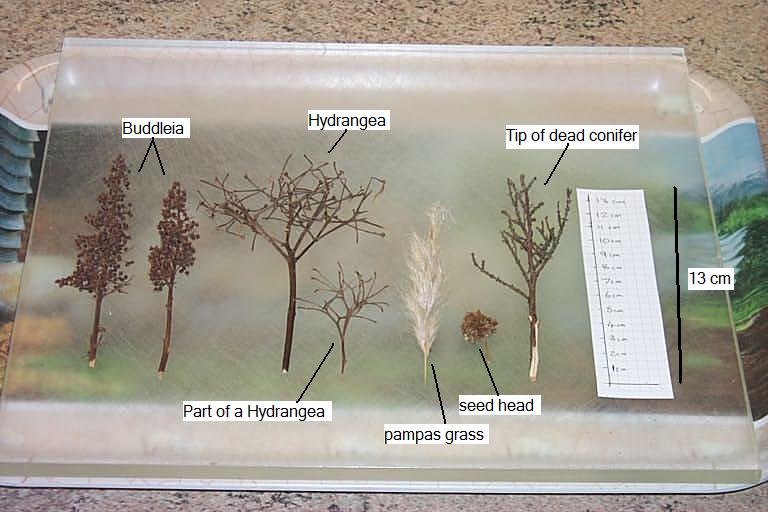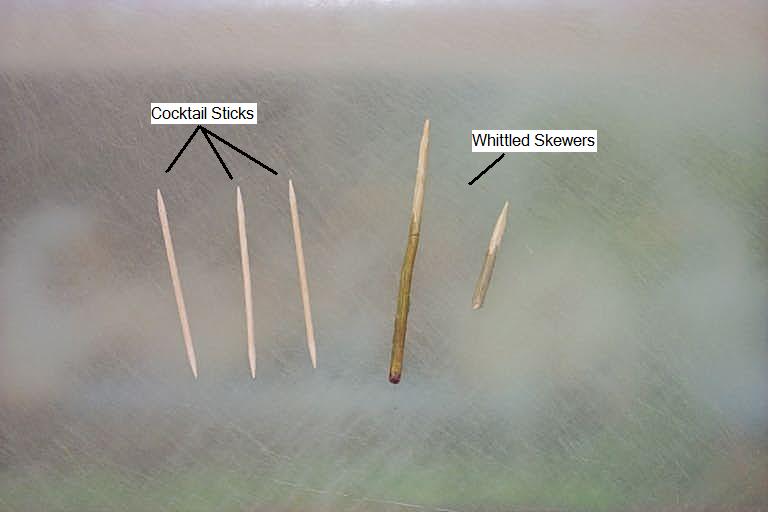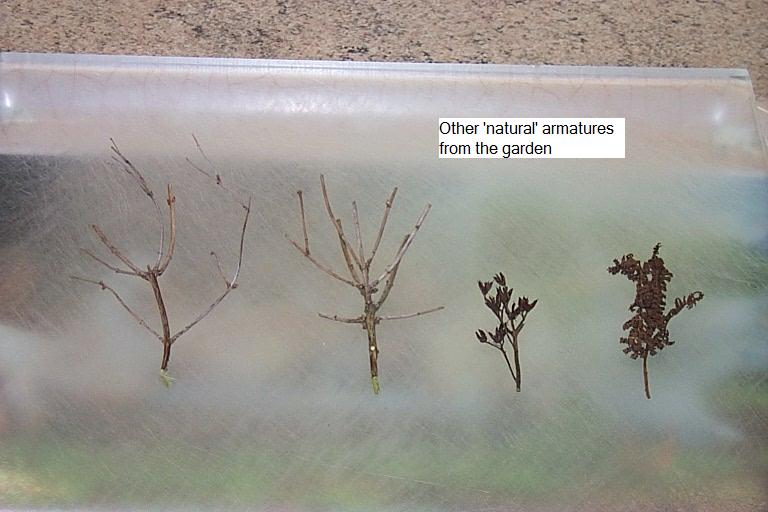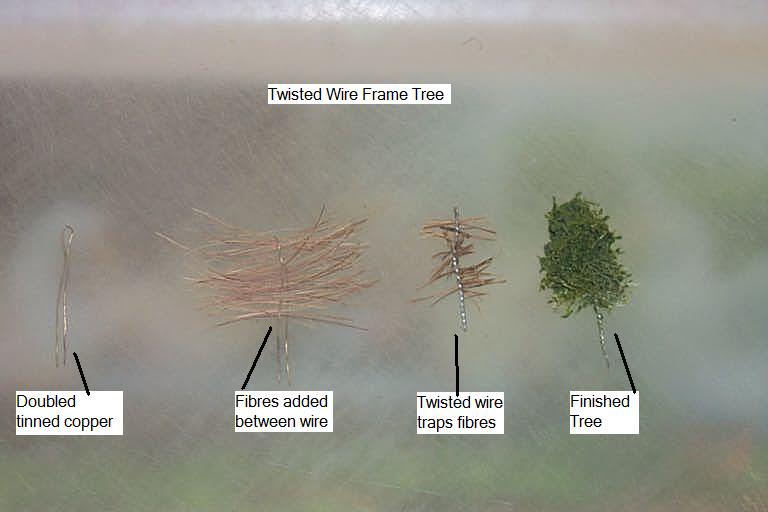Various 'Natural' Tree Armatures

Finished Trees

Wooden Skewer Tree
These are made from wooden skewers (obviously) that are cut to the required lengths maybe 3 - 7cm in length, allowing a little to be pushed into the baseboard. These are then whittled to a sharp point at one end.
Green material such as a torn up green pan scourer can be 'speared' on the skewer and pushed into position, fixed in place by a dab of PVA glue.
Further pieces of green material are then added as before and when the 'pointed end' has been reached and the glue has dried it can be trimmed to shape with a pair of scissors.
In order to make this more lifelike, the tree can be well sprayed with some cheap 'firm hold' hairspray and sprinkled with green 'scatter' to simulate leaves.

Twisted Stranded Wire Tree
If a piece of electrical flex (with stranded wire) is stripped bare this can be twisted to produce an 'armature' as shown in the following picture.
Starting with the base of the trunk the wire can be twisted together for a short distance.
Then the remaining strands can be separated into three of four groups , each of which is again twisted for a short distance. These are then split into several groups and the process repeated.
Finally the wire 'armature' can be fixed with a little 'super glue' allowed to dry, trimmed to length and bent into shape.
Green leafage and 'scatter' as already mentioned can be used to complete the effect.

Wire Frame Tree
If five or six lengths of tinned copper wire are placed side-by-side and fixed together at one end by wrapping with thin wire or even a little 'super glue' they can be bent into shape to imitate a shrub or tree with vertically sloping branches.
Once again these can be adorned with green material and scatter to complete the illusion.
The white 'armature' shown in the picture may need to be painted, as will the one made from tinned copper wire.

'Twig' Tree
When in the garden or park it is often possible to find some naturally shaped flower heads or shrub pieces that resemble bare trees (more evident in the winter months when many leaves have fallen).
These can be used as 'armatures' upon which green coloured material such as the aforementioned torn pan scourer can be glued.
Another option is to use the material sold at garden centres designed to be used in hanging baskets and with a little imagination you will find other sources of imitation foliage.
See picture at top of page for some other examples of 'natural' armatures.

Twisted Wire Frame Tree
A length of tinned copper wire can be bent double and suitable 'fibres' placed in between the two wires.
This can then be twisted and trimmed to shape, thereby trapping the fibres to produce an armature suitable for conifers.
It is best to secure one end in a small vice and the other end in the jaws of a variable speed drill.
Running the drill will rapidly twist the wire preventing, hopefully, the fibres falling out.
This required some practice but can work very well.









